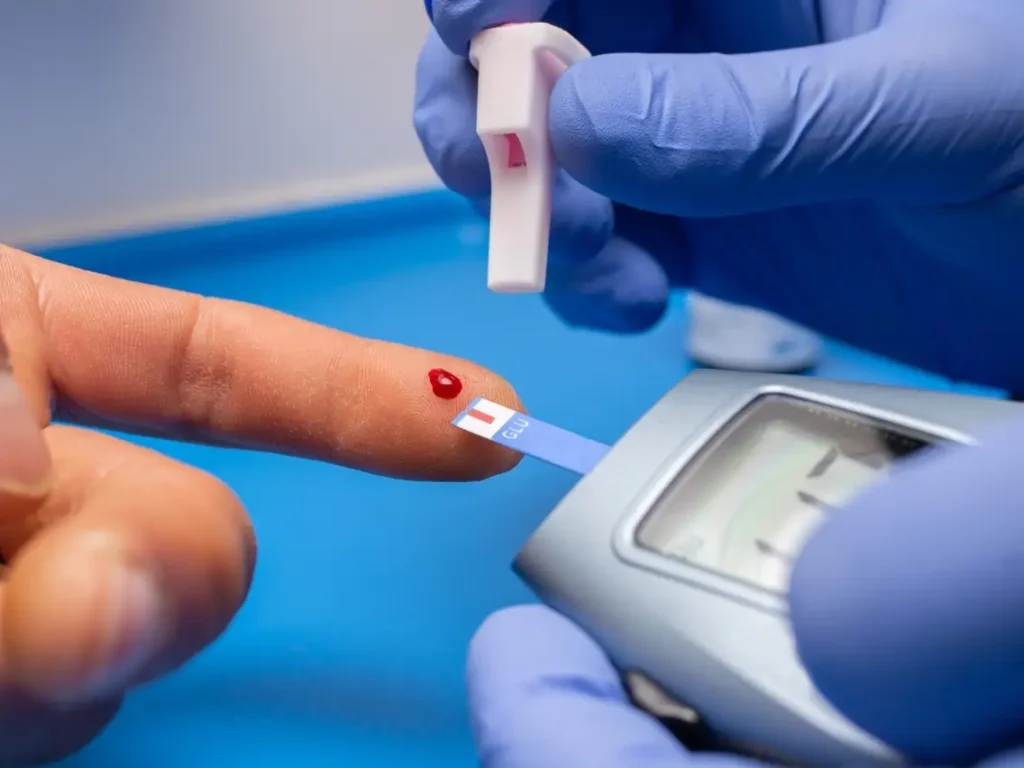In the United States, about one-third of the population takes a mineral supplement or vitamin every day with the belief that these products can improve their overall health and well-being [1].
One of the most popular supplements that people take is B vitamins, which include vitamin B6.
RELATED: 10 Reasons to Use Vitamin E Oil For Hair Growth
An Overview of Vitamin B6
Also known as pyridoxine, vitamin B6 is a water-soluble vitamin that is essential in many bodily functions, including the use and storage of energy from carbohydrates and proteins [2].
It is also necessary in regulating mood as well as mental function as it is involved in the production of serotonin and norepinephrine [2, 3].
Vitamin B6 is an umbrella term that refers to six compounds, namely:
- Pyridoxine
- Pyridoxal
- Pyridoxamine
- Pyridoxal 5` phosphate
- Pyridoxine 5`-phosphate
- Pyridoxamine 5` phosphate
Because of the crucial role vitamin B6 plays in major bodily functions, consuming pyridoxine through food is important because the body cannot create B6 for its own use.
Best Sources of Vitamin B6
Whole grains, cereals, rice, potatoes and other starchy vegetables, soybeans and other legumes, eggs, milk, fish, meat, and fresh fruits (except citrus) are some of the best sources of vitamin B6.
Signs that You Have Vitamin B6 Deficiency
Since vitamin B6 is found in many food sources, deficiency is not common.
However, vitamin B6 deficiency can increase the risk of various health issues, including those related to nerve function.
The following symptoms can signal deficiencies in vitamin B6:
- Fatigue or low energy
- Muscle pain
- Confusion
- Irritability, depression, anxiety, and other mood changes
- Aggravated symptoms of PMS
- Aggravated symptoms of anemia
Because vitamin B6 deficiency can increase the risk of arthritis, heart disease, and mental conditions, older adults are more at risk.
As a result, it is important for these individuals to make sure they are getting enough B6 either through their diet or supplements.
Here are some benefits of vitamin B6.
RELATED: 5 Essential Oils for Breast Pain, Soreness & Tenderness
1. Vitamin B6 Helps Keep the Heart Healthy
Vitamin B6 protects the body from a number of cardiac problems, such as coronary heart disease and heart failure due to its role in the metabolism of homocysteine, an amino acid that is involved in the processing and production of proteins [4].
Scientists believe that elevated levels of homocysteine can damage the lining of the blood vessels and promote blood clotting, which increases the risk for cardiovascular disease.
The link between low levels of vitamin B6 and cardiovascular disease is also reflected in the findings of a 2011 study in Verona, Italy [5].
Moreover, the results of two Canadian studies support the idea that vitamin B6 has protective qualities on the heart as the researchers found that B6 attenuates hypertension in rats [6, 7].
Key Takeaway:
Vitamin B6 is essential in processing homocysteine, making it necessary for heart health.
2. Vitamin B6 Keeps the Brain in Top Condition
High levels of homocysteine do not only increase the risk of cardiovascular disease, it can also damage the neurons in the central nervous system [8].
Patients with high levels of homocysteine can still have improved cognitive function if they take B6 supplement [9].
Additionally, scientists believe that neurological dysfunction like epilepsy can be caused by a deficiency in pyridoxal phosphate (P5P), a form of vitamin B6 [10].
Vitamin B6 can even relieve symptoms of the degeneration of peripheral nerves linked to some types of Guillain-Barre syndrome as well as diabetes [11].
Key Takeaway:
Vitamin B6 is important for the healthy functioning of the brain. Thus, deficiency can lead to problems in the central nervous system and could contribute to certain behavioral disorders.
3. Vitamin B6 prevents inflammation
Inflammation is the body’s response to irritation or injury, which often results in swelling and pain.
Inflammatory conditions, such as inflammatory bowel disease or IBD have been linked to low levels of vitamin B6.
In fact, a study published in the Journal of Nutritional Biochemistry shows that the biologically active form of B6, pyridoxal-5-phosphate (PLP) plays a crucial role in breaking down sphingosine 1-phosphate (S1P), a chemotactic lipid [12].
The concentrations of S1P and PLP in the colon are inversely correlated [12].
In other words, the higher the concentration of PLP in the colon, the lower the levels of S1P, which can attenuate IBD.
Key Takeaways:
Certain inflammatory conditions like IBD, cardiovascular disease, and rheumatoid arthritis are linked to vitamin B6 deficiency. Thus, supplementing with pyridoxine can improve these illnesses and reduce the pain that accompanies them.
RELATED: Top 12 Anti-Inflammatory Herbs That You Should Know About
4. Vitamin B6 Helps Improve Mood
For the brain to develop and function normally, it needs vitamin B6.
Vitamin B6 helps the body produce serotonin and GABA neurotransmitters, which are hormones that influence mood and are necessary for preventing fatigue, pain, anxiety, and depression [13].
People who are depressed or in poor mental health could be suffering from a vitamin B6 deficiency.
A 2014 study of Cambodian women also found that vitamin B6 can help reduce the side effects of taking oral contraceptives, such as lack of appetite, headache, nausea, and depression [14].
Key Takeaway:
Vitamin B6 is essential in the production of hormones that regulate mood, which is why B6 deficiency can cause depression. In addition, pyridoxine can help attenuate the side effects of taking oral contraceptives, which may encourage women in developing nations to continue using this form of birth control.
5. Vitamin B6 Alleviates Pain

Increased symptoms of rheumatoid arthritis have been linked with low levels of vitamin B6.
Apart from providing relief from rheumatoid arthritis, vitamin B6 has also been proven to alleviate pain from cyclic mastalgia or breast pain [15].
Vitamin B6 is also often used as a treatment for carpal tunnel syndrome, which results from the compression of the median nerve [16,17].
In addition, since migraines have been associated with vitamin B6 deficiency, supplementing with B6 can help reduce pain related to severe headaches [18].
Key Takeaways:
Rheumatoid arthritis and migraines have been associated with a deficiency in vitamin B6. Consequently, getting enough of the vitamin can alleviate the pain brought on by these conditions. Vitamin B6 has also been helpful in reducing pain caused by cyclic mastalgia as well as carpal tunnel syndrome.
RELATED: 12 Essential Oils for Sinus Infection, Congestion, & Headaches
6. Vitamin B6 Helps Balance Blood Sugar Levels
Elevated blood sugar levels can eventually lead to insulin resistance, which causes a variety of effects including hunger, lethargy, hair loss, and high blood pressure.
Vitamin B6 can help balance the levels of blood sugar since it is common for individuals with type 2 diabetes to show signs of vitamin B6 deficiency [19].
Supplementing with B6 has also been shown to increase glucose tolerance, which can be helpful to pregnant women with gestational diabetes [20].
Key Takeaway:
Vitamin B6 deficiency can lead to diabetes and its complications since B6 helps keep the blood sugar levels balanced.
7. Vitamin B6 can Treat the Symptoms of PMS
PMS or premenstrual syndrome is linked to the changes in the balance of hormones during a woman’s menstrual cycle [21].
Headaches, swollen and tender breasts, cramps, lower back pain, bloating, and lack of energy are the common symptoms of PMS [21].
PMS is a problem that has a global prevalence, based on the findings of a meta-study published in the Journal of Clinical and Diagnostic Research in 2014 [22].
According to the study, about half of women of reproductive age experience the symptoms [22].
Vitamin B6 is believed to help relieve the symptoms of PMS because of it has a positive effect on the neurotransmitters involved in the brain’s pain management system.
The important role of vitamin B6 in keeping the hormone levels balanced and increasing blood flow also makes it a good supplement for women suffering from PMS.
In fact, a 1999 study suggests that taking up to 100mg/day of vitamin B6 can be beneficial in the treatment of both the symptoms of PMS as well as premenstrual depression [23].
Key Takeaway:
PMS is a problem that many women worldwide suffer from. Supplementing with vitamin B6 is a natural way to alleviate the pain and other symptoms of PMS.
RELATED: 20 Simple Ways to Get Rid of Period Cramps (& How to Use Them)
8. Vitamin B6 Helps Improve the Condition of the Skin
Developing and maintaining a good condition of the skin are some of the biggest benefits you can get from B6 [24].
It has been used to treat various skin problems like dandruff, dry skin, acne, and eczema.
Several studies have found that deficiency of vitamin B6 can cause a deficiency in collagen and could result in skin lesions [25,26].
Key Takeaway:
Vitamin B6 is not only necessary in keeping skin healthy, it is also important for preventing skin problems. It is, therefore, essential that you get enough pyridoxine through food.
9. Vitamin B6 can Aid in Weight Loss
People who want to maintain muscle mass while on a diet need to ensure they are getting enough vitamin B6 either through food or supplements [27].
To improve the levels of vitamin B6 in the body while on a low-calorie diet, you need to consume plenty of cereal grains [27].
Furthermore, you can decrease your overall weight gain over the long-term if you supplement with B6 as well as vitamin B12 [28].
Key Takeaway:
The role of vitamin B6 in metabolizing nutrients for energy can make it helpful for individuals who want to lose weight and to keep the weight off.
RELATED: The Benefits of Honey and Cinnamon for Weight Loss
10. Vitamin B6 Helps Regulate Sleep Cycles
Improved sleep is one of the major reasons why many people take vitamin or mineral supplements.
While vitamins and mineral have not been proven to have soporific effects, B vitamins have been considered in preventing insomnia since vitamin B6 deficiencies can cause psychological distress and results in sleep disturbance [29].
Sleep difficulties can also result from a deficiency in P5P, the active form of B6.
Instead of the production of tryptophan, the deficiency can lead to the production of kynurenine, which gives rise to low levels of melatonin and serotonin [29].
Furthermore, vitamin B6 seems to be responsible for more vivid dreams by stimulating certain parts of the brain during REM sleep [30].
Key Takeaways:
Adequate sleep is necessary for overall health, including mental clarity. Since sleep issues have also been associated with low levels of B6, supplementing with the vitamin can help you get longer and better quality sleep.
Things to Remember When Taking Vitamin B6 Supplements
- Only people who have actual B6 deficiency or those advised by their doctor should take supplements.
- High doses of B6 can cause sensitivity to sunlight, nausea, skin rashes, and, if taken long term, can lead to nerve damage as well.
- When taken in high amounts, vitamin B6 can interfere with other medications so be sure to consult your physician before taking any supplement.
Bottom Line
Vitamin B6 is an essential vitamin that plays a major role in many bodily functions that are necessary for life, which is why deficiency in B6 can lead to health issues that include behavioral problems, cardiovascular diseases, and even poor sleep.
Despite being a naturally occurring vitamin, vitamin B6 can be harmful when taken beyond the recommended dosage or for long periods of time.
Hope this post has enlightened you of many health benefits of vitamin B6. Share your queries and feedback in the comment section.
READ NEXT: 18 Surprising Benefits of vitamin C




